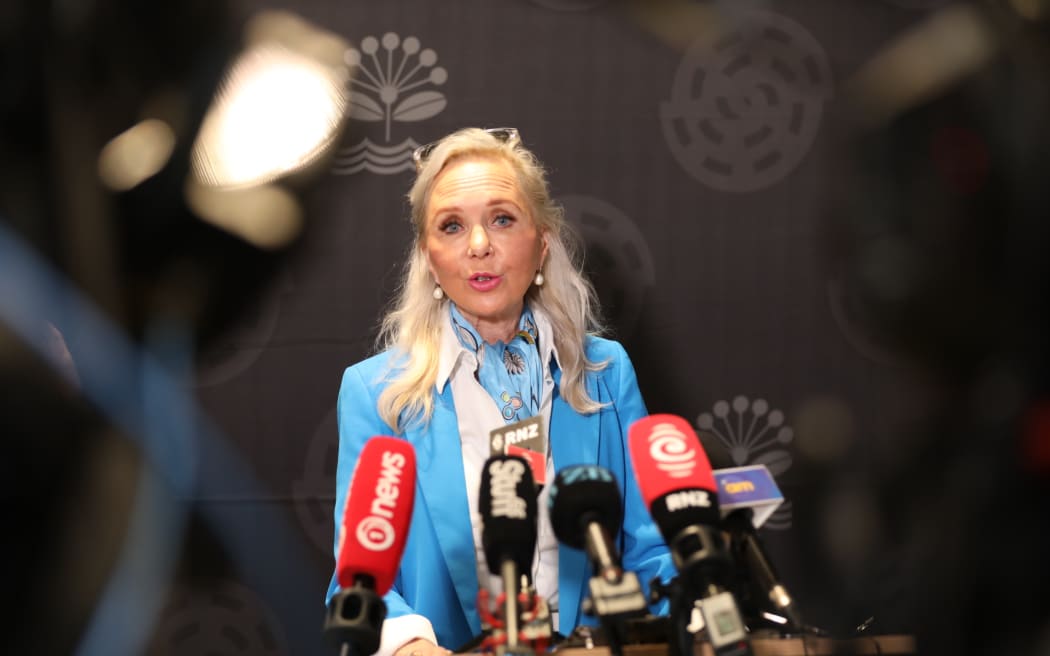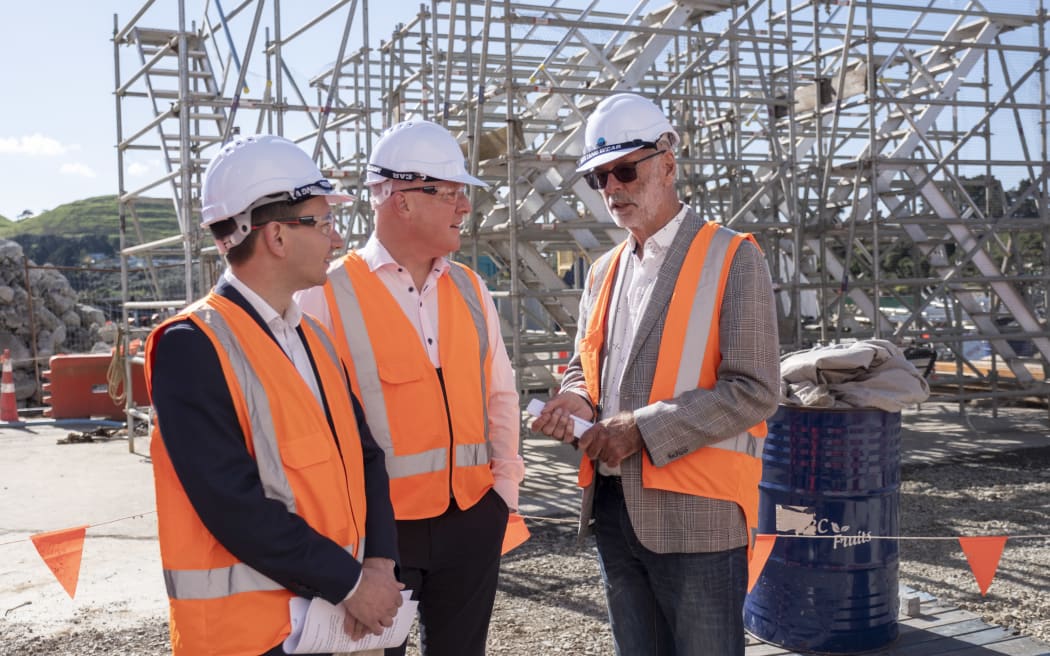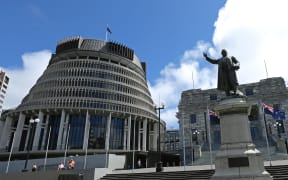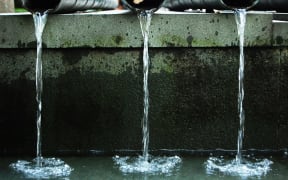
Auckland's deputy mayor Desley Simpson's says there are enough checks and balances in place to ensure any financial issues with Watercare would be identified early. Photo: RNZ / Nick Monro
Neither Auckland Council nor the government will be liable to bail out the new water entity should it get into financial trouble, says the city's deputy mayor.
Desley Simpson's comments came after Auckland councillors voted unanimously to retain control of water services in a new government deal, which will separate council finances from Watercare.
The deal will see water rates rise by 7.2 percent rather than the 25.8 percent forecast.
Watercare will be able to borrow more money to invest in infrastructure under the scheme with the cost of borrowing spread over a longer period.
Simpson told Morning Report there would be enough checks and balances in place to ensure any issues could be identified well before any bail out of Watercare might be needed.
"Watercare basically are in control of their own assets, but there are a whole lot of checks to ensure collectively, both from the government and from council, that they don't get into trouble. That's really key."
She said Aucklanders would benefit from the new model, as it required less money in rates and less risk by removing council responsibility for debt.
Simpson would not be drawn on how potential deals between the government and other councils around the country might look, saying her priority was to make sure the situation in Auckland was fixed.
"The government's priority is to make sure that New Zealand is fixed and I'm sure with this scheme they will have a Local Water Done Well programme for every part of New Zealand."
However she said she believed water should be metered across the country, as it was in Auckland.
"You've got councils in New Zealand that don't meter so people do not treat water as a precious commodity that it is. In Auckland, we do; you pay for what you use and if you don't want to use as much, you don't pay as much and I think that's a really key issue for the country."

Local Government Minister Simeon Brown, Prime Minister Christopher Luxon and Auckland Mayor Wayne Brown at the announcement of the new water deal. Photo: Supplied / Watercare / Simon Runting
'It's going to cost ratepayers more' - McAnulty
Labour's local government spokesperson Kieran McAnulty reiterated to Morning Report his belief Aucklanders would have paid less under his party's now-repealed Three Waters programme.
Read more:
"It's going to cost ratepayers more, but this is what the council wanted," he said.
"My beef isn't with the mayor, he's doing his job, he's representing his council, but the Minister of Local Government (Simeon Brown) is responsible for all councils and this model that was announced yesterday simply will not work anywhere else. They don't have the scale."
He said he did not agree "at all" with Brown's claims to Morning Report that Auckland's ratepayers would have been hit with higher costs if Three Waters had gone ahead.
"It's counter to all the advice that I received when I was minister leading right up to the election, that the Entity A would've had a higher credit rating than what is proposed yesterday - double A versus triple B ...
"I don't think that stacks up at all."
Brown earlier told Morning Report the 2 percent price cap proposed under the previous government's water reforms would have meant cuts to capital expenditure in the city.
"Labour would have [had] to say, well, what projects would they be happy with not going ahead in our biggest city?"
"If you put a price cap in place, you've got to ultimately reduce investment and this deal that we've struck with Auckland means that the financial separation occurs, the continued pipeline of investment takes place in Auckland ... such as the central interceptor project, which is a critical part of making sure we've got clean water in Auckland, that continues, and we also keep those costs down for Aucklanders during a cost-of-living crisis."
He acknowledged the money borrowed for water infrastructure would still need to be paid back but said the new deal would help spread the cost over a longer period of time.
"These are hundred-year assets and the people who benefit from them are not just people today, but people in many, many years from now."
Councils to be asked to present 'financially-sustainable' water infrastructure plans
Brown said the coalition was working to settle solutions for other areas.
"We're working on legislation which will come to Parliament in the middle of this year which will provide for councils to be able to set up regional CCOs (council-controlled organisations), joint CCOs - and so the legislation will help enable that."
Ensuring a range of funding and financing tools were in place was also part of the equation, he said.
"We're going to require all councils to put forward their plans for a financially-sustainable approach to water infrastructure in their communities, so they'll have 12 months to do that from the passing of that legislation."
Many councils across the country were already having those conversations, he said.
But McAnulty said he was concerned some councils with smaller ratepayer bases would be "left out in the cold" as they attempted to negotiate deals.
There would be "massive cost discrepancies across the country", he said and he worried about places like Northland, Gisborne, West Coast and small rural councils like Tararua District.
"My concern as a former Minister of Local Government and now Local Government spokesperson for the opposition is the whole country - not just the easy ones to pick off at the start."






